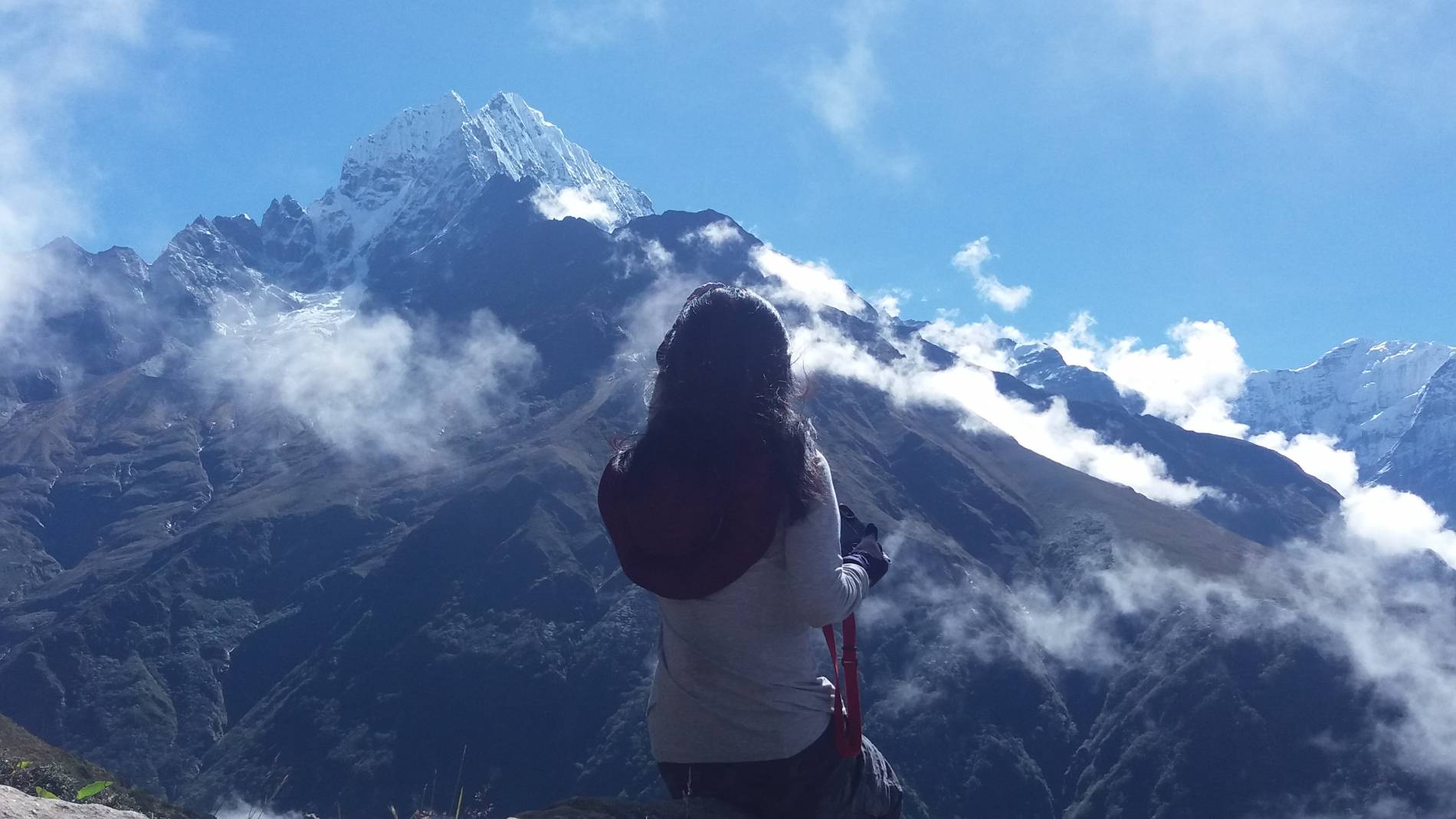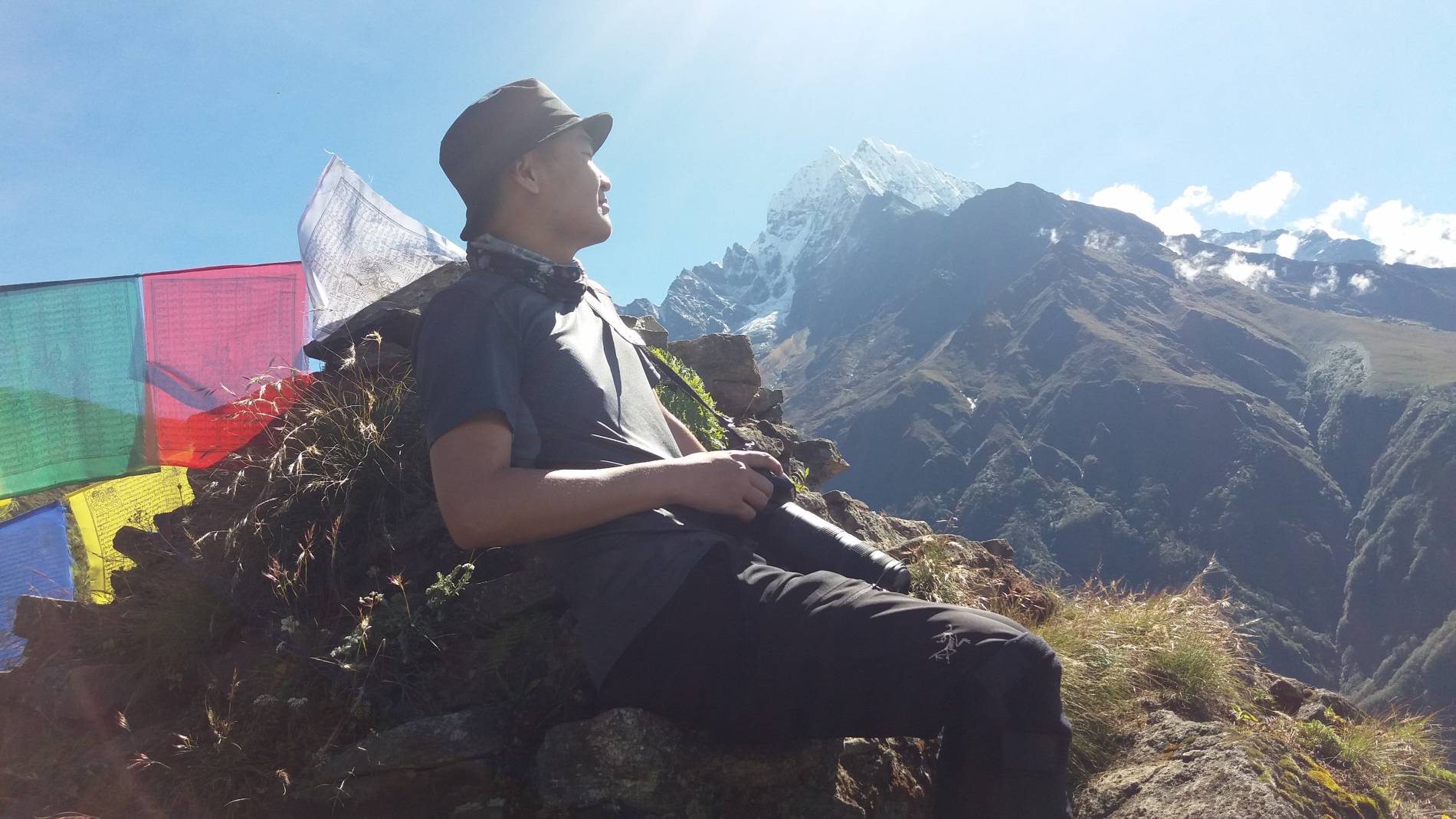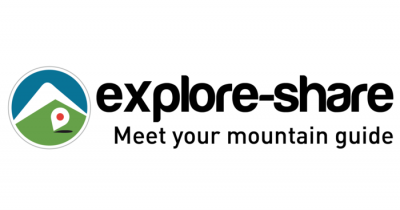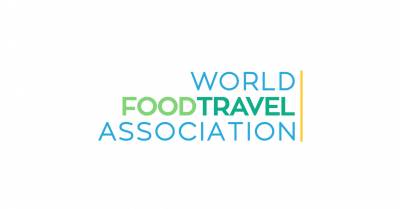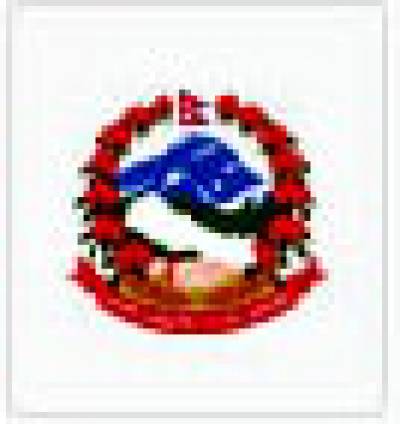19 DAYS EVEREST THREE HIGH PASSES TREKKING
A FEAST OF FEATURES MAKES THIS THE ULTIMATE ADVENTURE.
MAKE THIS YOUR DREAM COME TRUE ESCAPE TO THIS AMAZING REGION.
This physically demanding 19 day trek has everything you could possibly wish to see in the Everest region; crossing three high altitude passes - Renjo la (5388 m), Cho La (5380 m) and Kongma La (5535 m); picturesque valleys - Khumbu, Bhotekoshi, Gokyo, and Imja Tse; and unimaginable views and ascents of Mt. Gokyo Ri (5483m), Kala Pathar (5545m) and Chukung (5550m) before reaching the fabled Everest Base Camp – the doorway to the world’s highest mountain – Mt. Everest (8848m).
The list of places to see is extensive that also includes the vivid turquoise blue Gokyo Lakes (4,700–5,000m); Gokyo Ri (5357m); visit the seldom visited and isolated trading route between Nepal and Tibet -Nangpa La Pass; the large Sherpa village of Marlung (4260m) and the Thame Tibetan Buddhist Monastery – the oldest in the Khumbu region and thought to have its beginnings in the 17th century. The monastery is perched 200 meters above Thame on the side of Sumdur Mountain and offers some extraordinary views of the Himalayas.
There is no better and comprehensive trek available in the Everest region. This trek is ideally suited to the more physically fit who wishes to go a little further to far-flung places and be challenged by the high altitude 3 passes. The best time of year to do this trek is in autumn (Sept to November) and spring (March to May) with less likelihood of being snowed-in and unable to complete the trek.
Lukla is the ideal starting point, but if you have more time then you can start from Jiri, Lukla, Phaplu or Salleri. Sherpa Expedition and Trekking is happy to customize this trek to suit your time schedule.
ITINERARY
Day 1 : Arrival at Kathmandu and transfer to Hotel (1,350m).
A representative from Sherpa Expedition & Trekking will meet you at Kathmandu Tribhuvan International Airport and drive you to your hotel. On arrival at your hotel, and after check-in, there will be a briefing regarding your Everest Three Passes trek. Our representative will provide you with a route map and other useful information, such as lodges where we stay and some do’s and don’ts.
Day 2 : Fly to Lukla (2,850m/9,350 ft) 40 minutes, Trek to Phakding ( 2650 m/8562 ft ) Duration: 4 hours.
After breakfast in your hotel, we drive to the domestic terminal of Kathmandu Airport for the 35-minute flight to Lukla landing on a precarious strip of tarmac overlooking the Dudh Koshi River. Today we meet our porters and then have lunch at the Yeti Mountain Home Lodge and then begin with a relatively easy trek descending to Phakding. This trek takes us through farming lands of the Sherpas passing through several villages along the way. Nowadays, many Sherpas make their living solely from trekking. Along the trail, we can stop at one of many tea houses for refreshments and a chat with the locals. We will also pass by many mani stones (a form of prayer) which are stones carved in Tibetan script, and of course, you will see many strings of prayer flags along the trail. We then arrive at our lodge on the banks of the Dudh Koshi River where we stay the night.
Day 3 : Trek from Phakding to Namche Bazaar (3,440m/11,285 ft) Duration: 5-6 hours.
Today the trail takes us through a beautifully scented pine forest along the banks of the Dudh Koshi River crossing several suspension bridges along the way. The most well known of these suspension bridges is the Hillary Suspension Bridge – named after Sir Edmund Hillary, the first man (along with Sherpa Tensing to climb Everest). Our trail gives us a view of Mt. Thamserku (6618 m) before passing through the small villages of Benkar, Chumoa & Monjo just prior to the entrance to Sagarmatha National Park. The final village we pass is Jorsale before ascending through forests and crossing several bridges until we reach the head of the Dudh Koshi and Bhote Koshi rivers. A steep climb of about 2 hours gives us our first glimpse of Mt. Everest just above the Lhotse-Nuptse ridge. Arriving at Chautara we can again reach for our cameras and take in the views. We continue on for about 1.5 hours to reach Namche Bazaar, well known as the gateway to Mt. Everest and the main trading hub of this region – the Bagmati Zone. Tonight we stay at Namche Bazaar.
Day 4 : Rest day at Namche Bazaar for acclimatization.
In order to reach higher altitudes, we will spend two days acclimatizing. Health experts recommend we stay active and moving during the rest day. Today we can choose between taking a hike to Thame or visit Khunde, or alternatively relax and explore Namche Bazaar – the home to many Sherpas employed in the trekking business. Namche Bazaar is the main hub of the Everest (Khumbu) region with government offices, ATMs, Internet cafes, shops, restaurants, a bakery, and of course a colorful market each Friday evening and Saturday. If we decide to take a vertical trek during the day it will help us to properly acclimatize. Our guides take us to the Tourist Visitor Center near the headquarter of the Sagarmatha National Park where we can see a variety of artifacts related to the first Everest climbers, learn about the Sherpa culture and the numerous flora and fauna of the Everest region.
Day 5 : Namche Bazaar to Thame (3750m/12,303ft) Duration: 5-6 hours.
Sherpa Expedition and Trekking route divert west; contouring the hillside reaching the ridge looking down at Namche and the trek follows the gradual winding path up the Bhote Kosi River valley, once a popular trading route into Tibet. In Thame, we can see the excellent views of Teng Kangpoche and Kwangde and to the north is the Nangpa-la 5,710m pass leading to Tibet. Overnight at Thame.
Day 6 : Thame to Lungden (4500m/14,764ft) Duration: 5-6 hours.
This is a day where we trek through a remote Sherpa village and Himalayan meadows we’ll continue to gain altitude as we trek through a beautiful and isolated area. Overnight at the Lungden Tea House
Day 7 : Lungden to Gokyo Lake (4750m) through Renjola Pass (5446m/17867ft)) Duration: 7-8 hours.
Today's nearly 5-6 hrs walk takes us to reach the top of Renjo overlooking a great view of Mt. Cho-Oyu world's 6th highest mountain which straddles the border with Tibet and Nepal on reaching the top the first pass of this great trek traversing over 5,345m.
Day 8 : Rest day to Acclimatize at Gokyo
Very early in the morning, about a 2 hours hike up to the Gokyo Ri (5,360m) for the breathtaking view of sunrise atop the mountain with a view of the four highest mountains including Mt. Everest. This will be an unforgettable memory and enjoy around the top. We have great memories and stroll back an hour to Gokyo for breakfast then take a rest and relax all day.
Day 9 : Gokyo to Thangnak (4,700m/15,400ft) )Duration: 4-5 hours.
After having a late breakfast, we trek down to Thangnak for overnight passing through the second lake and walk on the Nagjumpa glacier and will arrive at Thangnak. Overnight at Thagnag.
Day 10 : Thangnak to Dzongla (4,855m/15,930 ft) through Cho La Pass (5420m/17,783ft) Duration: 6-7 hours.
Today, Early in the morning we walk in the high passes and one of the more difficult days to cross the Cho-la Pass (5420m). Therefore we must have breakfast very early in the morning or carrying a packed breakfast, then climb up. The pass is not terribly difficult but it is steep and involves a glacier cross on the eastern side of the top. After crossing the Cho-la pass, the trail reaches Dzongla where we can stop overnight at a teahouse with basic dorm rooms and cozy dining. Overnight at Dzonga.
Day 11 : Dzongla to Lobuche (4,910m/16,175ft) Duration: 3-4 hours.
After having breakfast, the trail goes up to Lobuche. We keep on our trek along the moraine of the glacier and surrounding scenery of Chola Che. The Labuche Peak is the first within view of Kala Pathar (5,550m) and Pumori is also along the way. We will be in Labuche before lunch. You will be relieved after a long walk to get here. Overnight at Lobuche.
Day 12 : Lobuche to Everest Base Camp and back (5,364m/17,598ft)to gorak shep (5,185m/17,010 ft) 6-8 hours.
Today After breakfast, the trek continues gently climbing and sometimes directly ascending to a nearby glacier. The trail to Gorakshep is rocky and windy but it offers good views of Mt. Pumori and there are beautiful views of the Everest base camp. After lunch, we ready ourselves for today’s adventure to the targeted destination and continue our trek towards the Everest Base Camp and to the Khumbu Ice-fall. The path from here can be misleading. Make sure to follow the lead Sherpa since every year the trail changes due to the movements of the glacier. The walk is quite and strenuous due to the high altitude and thin air. The walk passes over rocky dunes and moraine and streams until you reach the base camp. If you are trekking during the high expedition season it may feel like a city up there. It takes 2-3 hrs to get to base camp and after a grand time here go back over the journey to Gorekshep for the overnight at lodge.
Day 13 : Climb to Kala Patthar(5,55 5m/18,208ft) and trek to Lobuche (4,910m/16,175ft (4,250m/13,945ft) 5 hours.
Very early in the morning, we will have to climb up 2 hours to Kalapather for a 360-degree view of the mountain peaks. When reaching the top, you will feel joyful as you achieve the moment that you have been dreaming of since the beginning of your journey. A small rocky peak “Kalapathar/Kalapattar” offers you beyond imagination views. The panoramic view from this spot is something to cherish and you feel it’s worth the hard climb up to here to feel at the top of the world. You can also see the Everest Base camp down below on the moraine of Khumbu glacier and many mountainous sceneries such as Pumori (7,145m), Lingtren (6,695m), Khumbutse (6,623m), Changtse (7,550m), Nupse (7879m), and even Everest itself. After breakfast in Gorakshep, we trek down to Lobuche then continue staying high above the valley floor in Imja valley. It is the only place in Khumbu where barley is grown. Enjoy the scenery and stay overnight in the hotel.
Day 14 : Lobuche to Chhukung (4730m/15580 ft) Via Kongma La (5535m/18159ft) Duration: 7-8 hours.
Today, Early morning take your breakfast and walk continue to Kongma La Pass (5350m) and all the way down to Chhukung. Stay overnight there at lodge. You will have a picturesque view from Kongma La pass to Chukung Gorek Shep village with charming Khumbu Glacier on the Lap of Everest on the left view and right side you will see Island peak, Makalu, Lhotse, Nuptse, Amadablam, Thamserku, Taboche and surrounding Sherpa settlement.
Day 15 : Chhukung to Tengboche (3,855m/12,850ft) Duration: 4-5 hours.
Today you can fell better heading down to a lower elevation. From Chhukung the walk is pleasant all the way to Tyangboche. You can see very old Pangboche Sherpa village and further down to Tyangboche is one of the most beautiful places in the Himalaya the first thing that comes to your eye is the big Monastery or Gumba, then the large field with campsites and teahouses, lodges beneath the soaring majestic gorgeous peak Ama Dablam, Everest, Mt. Lhotse and Lhotse Shar towards northeast and more peaks all around.
Day 16 : Tengboche to Namche Bazaar (3,440m/11,285 ft) Duration: 4-5 hours.
The trail goes down through forest with pine, Juniper, rhododendron with a few magnolias and birch trees. You will never forget the great memory of crossing the suspension bridge over the Dudh Koshi River trek onwards to the Sanasa and to Namche bazaar to stay overnight.
Day 17 : Namche Bazaar to Lukla 2,850m/9,350 ft Duration: 6-7 hours.
In the morning we follow the trail to Phakding and then head back to Lukla. Tonight we celebrate our achievements and reminisce sharing the highlights and photos of this jam-packed mountain trek.
Day 18 : Fly back to Kathmandu Duration: 30 Minutes.
Today, in the morning, we fly back to Kathmandu after our epic mountain journey. After arriving in Kathmandu we can either rest or wander around Thamel doing some last-minute shopping. Tonight is a night of celebration after the completion of this most memorable experience, with memories to last a lifetime!
Day 19 : Transfer to Tribhuwan International Airport.
Today your journey ends and you take with you many snapshots of some of the world’s highest peaks. On this journey you will have made friends and can share memories of this fantastic Everest High Three Pass Trek and of course the smiling faces of those who live in these remote wilderness regions. Sherpa Expedition &Trekking staff will take you to the airport for your final departure.
SERVICES
Costs included in your package.
- Airport picks up and transports by private Car/Jeep.
- Two night’s standard twin sharing Hotel in Kathmandu with breakfast.
- Three meals a day (Breakfast, lunch, and dinner) during the trek.
- Fresh fruit every evening after dinner.
- Trekking Lodge (Tea House) accommodation during the trek.
- All necessary paperwork including Sagarmatha National Park Entry Permit & Khumbu Pasang Lhamu Rural Municipality fees.
- Kathmandu-Lukla-Kathmandu (Ramechhap -Lukla- Ramechhap) flight with private airport transfer and domestic airport tax.
- A highly experienced, helpful, knowledgeable, friendly, English speaking well trained, Government license holder guide with all his salary, food, drinks, accommodation, transport and insurance.
- Strong, helpful Sherpa porters with proper safety equipment and walking equipment, his salary, food, accommodation, and insurance (one porter for two people).
- Comprehensive medical supplies (first aid kit will be available).
- Arrangement of emergency helicopter service (paid by your Travel Insurance Company).
- Use of sleeping bag, down jacket, duffel bag and walking poles (if you don’t have your own, to be returned after trip completed).
- Sherpa Expedition and Trekking T-shirt
- Government taxes and official expenses.
- Trip achievement certificate after successful trip completion.
- Oxygen meter to check your pulse and oxygen saturation and heart rate twice daily (Very useful to check Altitude Mountain Sickness(AMS) symptoms) which will ensure your health during the trek.
- Assistant guide for groups of 8 or more people.
Costs Exclude
- Meals whilst you are in Kathmandu - lunch, and dinner.
- Nepal entry visa fee (easy to obtain the visa on arrival at Tribhuvan International Airport – Kathmandu). $30 USD for 15-day, $50 USD for 30 Days, and $125 USD for 90 Days visa.
- Personal travel and medical insurance.
- International airfare.
- Your personal expenses.
- All the alcoholic and nonalcoholic, soup, tea, coffee, hot chocolate, cocoa, mineral water, extra food, cold and hot drinks on trek ( i.e. those you choose to purchase along the way and during evenings in the tea houses)
- All desserts & sweet things like chocolate, cake, pie, pudding.
- Hot shower and battery charging at the tea houses.
- Tips for the guide, porter, and driver (tipping is expected)
- Excess baggage of more than 10 kg for Lukla flight.
- NOTE: If you return earlier from the trek due to sickness or any problem, the money you paid for the flight, hotel, mountain room, food, etc. is nonrefundable, and you will need to bear the expenses for the hotel, food, etc. in Kathmandu yourself.
EQUIPMENTS
The following information will give you some idea about what you need to bring for the trek. It is important you do not forget the essential items, as this will determine your comfort and safety on the trek. Equally important is that you do not burden yourself with unnecessary equipment on the trek.
General
- All season sleeping bag and down Jacket (we can provide if you need it, but has to be returned after the trek)
- Duffle bag ( Sherpa Expedition & Trekking provide duffle bag during the trek but has to be returned after the trek)
- A wind and waterproof thin layered jacket (a must-have for morning and evenings above 3,000m)
- Daypack
Upper Body- Head / Ears / Eyewear
- A pair of half gloves
- A warmer hat that covers the ears
- Sunglasses
- Neckwarmer
- Sunscreen (35 to 60 SPF)
- Headlamp and an extra set of batteries
Hands
- A pair of half gloves for walking poles(if you prefer)
- Warmer shell gloves and liner
Upper Body
- long sleeve t-shirts
- Thermal tops
- wool jacket or pullover
- Sports bras for women and girls
- Water and windproof shell jacket
Lower Body
- Thermal underwear (especially trousers)
- windproof and waterproof trousers
- warmer trousers
- Comfortable trekking pants
- Extra casual sport pants
Footwear
- A pair of good waterproof trekking boots
- Pair of sandals
- 4-5 pairs of woolen socks
- Sock liners
- Light shoes and sneakers
- First Aid Kits and Medicines
- Assorted adhesive bandages (fabric preferred)
- Blister treatment cream or similar
- Insect / anti-itch ointment
- Ibuprofen or other pain-relief medication
- Diamox (125mg to 250mg tablets for altitude sickness)
- Warps, splints, and wound coverings butterfly bandage
- Water purifying pills
(Note our company guide will carry the medicines and first aid kits during the trek. However, we recommend you bring your personal first-aid kit as well)
Miscellaneous - but must useful on the trek
- 4 passport size photos with original passport
- Water bottle & filter
- Flight details (please make a copy and leave one pic at our office in KTM because in case you want to change your flight date)
- Bathroom kit (conform, should be included toilet paper, plastic bags, hand wipes, towel, and soap, etc.)
Extra things
- Comfortable trekking poles
- Quality energy dry foods (up to you)
- Power bank and music players
- Camera (memory card, chargers, and extra batteries)
GOOD TO KNOW
Accommodation
You will be accommodated in 3-star hotels in Kathmandu. During the trek, we will be staying at lodges/ teahouses. You may find comfortable and better quality teahouses - having attached bathroom - until Namche which is a thriving town seeing many more tourists and a greater range of accommodation. It should be noted that at higher elevations the quality of accommodation may not be as good, with more basic rooms with the bare necessities.
Meals during the trek
In Kathmandu, your hotel includes breakfast, whereas all meals (breakfast, lunch, and dinner) will be provided during the trek. A staple food of the region are potatoes, oats, buckwheat, Sherpa stew, and Tibetan bread. Sherpas started farming potatoes when the first seeds were introduced to the region in the early 90s. There is a limited choice of food at higher elevations and except many potato dishes. Potatoes are high in carbohydrates – an excellent source of energy needed at high altitudes.
Transportation
We use a private car for sightseeing and for the airport to hotel pick and drop off. We do not have to use public transportation or local buses during the trek. Our only flights are from Kathmandu to Lukla and return.
Physical fitness
This is a challenging trek where you often have to walk 6-7 hours a day. You don’t need past experience of hiking or trekking but if you have done any kind of trekking activities then it is always a plus!. We have met people from all walks of life, shapes, and sizes who have completed the trek. The only difficult part is when altitude sickness strikes and the effect that it can have on your body. Before leaving for Nepal it is good if you can prepare yourself physically by increasing your stamina and oxygen intake.
Remember – The better prepared – the more enjoyable your trek!
MAP
PHOTOS/Videos
Departures
Select a departure month
Fill out the form below and a Travel Expert will reach out to create your perfect tour.
FAQS
What is the level of trekking to Everest Three High Passes?
The level is more difficult than other trekking programmers. However, Sherpa Expedition and Trekking tries its best to make the journey as easy, adventurous and joyful as possible.
How is the drinking water in the trails to Everest Three High Passes?
Bottled water is easily available at a low cost. But you can not use plastic bottles in the Everest region. So, they do not sell plastic bottled mineral water. You need to drink mineral water or boiled filtered water in those areas. It is better to use water purification drops and tablets which you can either bring from your own country or buy in Kathmandu or Pokhara. Sherpa Expedition and Trekking also provides water purifier pills.
What is the weather condition at Everest Three high Passes?
Weather on the trail to Kongmala and Chola Pass is always changing and impossible to predict. Here is a list of probable temperature and weather conditions in each month. Month Temperature Weather and Nature January Max 4°C in the daytime to min -17°C in the nights and mornings Blue skies, freezing weather February Max 4°C in the daytime to min -15°C in the nights and mornings Mild and humid, good visibility March Max 7°C in the daytime to min -12°C in the nights and mornings Days are short and the temperature starts to warm up, chances of occasional snow falls April Max 10°C in the daytime to min -5°C in a night Moderate temperature with amazing landscape, rhododendron and wildflowers May Max 15°C in the daytime to min 0°C in a night Days are still long, warm, and sunny June Max 16°C in the daytime to min -1°C in a night Rainy season July Max 15°C in the daytime to min 2°C in a night Hot and humid Auguest Max 16°C in the daytime to min 2°C in a night Max 16°C in the daytime to min 2°C in a night September Max 15°C in the daytime to min 2°C in a night End of monsoon, no clouds October Max 12°C in the daytime to min -6°C in a night Stable weather condition November Max 6°C in the daytime to min -12°C in a night Days are sunny and bright, cold during the night, sleeping bag is most. December Max 4°C in the daytime to min -14°C in a night Foggy and cloudy weather.
I have never hike before, can I make it to Everest Three high Passes?
Yes, you can. No matter who you are, as long as you are reasonably fit, can walk for 5-6 hours a day and trek/hike a few uphills, Sherpa Expedition and Trekking Trekking team will support you to the fullest to transform your dream of standing Everest Three high Passes into reality.
What is the best Season for trek to Everest Three High passes?
The month of March to May in Spring and September to December in autumn seasons are considered the best for the Everest Base Camp Trek as the weather conditions become favorable during this time, providing you with good visibility and a suitable atmosphere for Everest Three Pass High trekking.
Is there an age limit for Everest Three High passes trekking?
No, there is no age limit for the trek to Everest Three High pass but, you need to be in good physical shape and have a positive attitude. We also suggest you to prior to the excursion though we suggest you to please see your doctor and obtain necessary permission and advice, as well as medications for traveling in extreme altitude prior to the excursion.
What are the meals on the Everest Three High pass trekking like?
During trekking, you will be served meals in the teahouses. Typical meals are noodles, rice, pasta or potato dishes along with vegetables and egg/chicken/meat dishes. Other items mostly served as breakfasts include Tibetan, egg, pancake, bread, porridge, muesli, and toasts with peanut butter and honey.
What kind of accommodation will be provided during the Everest Three high passes trekking?
A teahouse trekking accommodation will be made for you for the Everest Three High passes trekking whereby you will be able to stay at tea house(Local lodge) and have wholesome food and net and clean comfortable bed throughout your trekking journey. This form of arrangement also allows you to carry less baggage; you can trek at your own pace and enjoy the Everest panorama on your own schedule. It is also an eco-friendly way of trekking whereby trekkers can have more contact with the local's sherpa peoples.
Are there toilet facilities at the tea houses? What opportunities will I have for shower during trekking?
Most of the teahouses on the Everest Three High Pass trail have squat toilet facilities but recently built lodges have western-style toilets as well. Nowadays, flush toilets are also being introduced with number of increasing foreign mountaineers each year. It is highly recommended to carry your own toilet paper and other required toiletries. Hot shower facilities are available till Gorakshep. The most common type is a bucket shower, usual buckets with tap filled with hot water and placed in a shower room. Hot shower costs from US$ 4 to 15 per use and the price increases along with the elevation. Attached bathrooms and toilets are not available unless you book for a luxury lodge during the Everest Three High pass trek.
What kind of clothes do we require for the trekking and is it possible to purchase it in Kathmandu before the start of the trip?
What you want to wear depends on you but we suggest you wear warm clothes during the Everest Three Pass trekking. A down jacket, thermal longs and top, comfortable trekking trousers, t-shirts, fleece, windproof jacket, hat, scarf, and gloves might be useful. There are numerous trekking shops in the Thamel area of Kathmandu where you can get all of these items in both local and branded stores alike. Sherpa Expedition and Trekking may also accompany and assist you if required.
Do I need to bring any bags for trekking? If yes, what kind?
During the Everest Three High pass trekking, you will be on a long journey for which you will need two bags to keep your belongings. A rucksack/duffle bag and a day bag for personal items. Sherpa Expedition and Trekking will provide you with a duffle bag (which is need to refund after the trek) that you can use throughout your entire journey and even afterward. These bags are durable and hence perfect for any kind of trekking journey. While the duffle bag will be carried by the potters, you will have to carry a day bag on your own. A day bag is a small backpack that has enough room for everything you will need on a day hike such as lunch, water, extra clothing and perhaps a few personnel items like camera, battery chargers, etc.
Do I need to bring any personal equipment like sleeping bags, down jackets, Trekking poles etc?
If possible, we suggest you bring your own equipment. However, sleeping bags and down jackets will be provided to you by Sherpa Expedition and Trekking. With regards to trekking poles, if you are used to walking with it then take them with you, as you will probably find them useful especially on the way down. They are not essential though and the walk is manageable without them. It is mostly a personal preference. If you prefer to take the trekking poles with you on the trekking then you can either bring your own pole or buy it from numerous options available in Kathmandu itself.
Is it possible for me to store extra clothing that I will not need?
Yes, if you have a bag of extra clothing for when you return from the trekking, you will be able to store it safely in Kathmandu Sherpa Expedition and Trekking office. The storage facility is provided by most hotels and lodges in Kathmandu or you can also store it in our office for the duration of the trekking.
What problems can arise on high altitude?
Our itinerary has been specially tailored to prevent any kind of AMS (Acute Mountain Sickness) while moving up to higher altitudes. Normally, altitude sickness starts from 3,600 meters and above. You will be trekking at a relatively slow and gradual pace as part of the acclimatization process. Cut off caffeinated, alcoholic and smoking items. Drink at least 4 liters of water a day. Trek slow. Don't skip the acclimatization days. Better to continue with Diamox (if any symptoms show up). Drink Garlic Soup. In the higher elevation, there is less oxygen in the air and this is more so while crossing high passes. Our expert guides will advise you on how to avoid AMS and treat it when/ if required.
Do I need insurance for Everest Three High Pass trekking?
Make sure to have both medical and evacuation insurance before coming to Nepal for Everest Three High pass trekking. You should be careful in choosing a policy while traveling to a Himalayan country like Nepal as some insurance companies may make special exceptions for adventure travel. If you are confused about the insurance, please inform us and we will help you. It is usually better to arrange your insurance in your country before travel.
How long do I need to walk per day during my trek to Everest Three High Passes?
The trekking will be 5-7 hours a day depending upon the landscape and destination. when you cross the high pass that day need to walk 7 to 10 hours.
How long will it take to reach Everest Three High pass?
It takes 6 to 19 days to reach Everest Three passes top depending upon the mode of transportation and packages of Sherpa Expedition and Trekking offers.
How safe is Everest Three High Passes trekking?
We at Sherpa Expedition and Trekking Team always have the safety, comfort, and satisfaction of our valued customers as our foremost priority at all times, and we assure you a wonderful and unforgettable time with us in our beautiful country. Sherpa team members of Sherpa Expedition and Trekking will be carrying all the necessary gear, equipment, and first aid kits and they have extensive first aid training. If a trekker falls sick on high altitude, the leader will decide whether to continue the trek. In case of emergency, Sherpa Expedition and Trekking have a rescue helicopter to bring you back from the higher elevation. Moreover, Sherpa Expedition and Trekking also provides oximeter to monitor the oxygen level at high altitude and offers regular health check-up facilities.
What are the mode of transportation?
You can either trek on foot or by a helicopter. Sherpa Expedition and Trekking offer exciting and reasonable Helicopter trek to Everest Three passes for 8 days and 19 days. Sherpa Expedition and Trekking can also customize your tour as per your necessity.
What if my flight to and from Lukla is cancelled or delayed?
The flights are usually regular between September and May. But due to high altitude, bad weather and unforeseen technical issues, you may experience a delay or cancellation of the flight. On the occurrence of such events, Sherpa Expedition and Trekking charter a helicopter to make sure you are on the safe schedule either for a trek or for your flight back home which would cost extra charge as an unexpected event. However, if the visibility is less than 1,500 meters, it is unable to operate helicopter facilities and Sherpa Expedition and Trekking will reschedule the flight.
What is the luggage limit for porter and flight to Lukla?
Sherpa Expedition and Trekking will provide one porter for two trekkers to carry 20 kgs of luggage (maximum 10 kg for each trekker). Please be sure your porters are not overloaded because they do not carry only your equipment but also lift your spirit to reach new heights, and your love, affection, and generosity can be the reason for them to work hard to take you to your destination. However, the weight limit on flights to the Everest region, basically to Lukla is a total of 10 kgs and you need to pay an extra amount per kg for the excess baggage. Sherpa Expedition and Trekking pays up to 5 kgs of extra baggage making your total to 15 kgs with your hand bag.
What types of liquid do I need to drink at high altitude?
Garlic soup is a must while trekking. Sherpa Expedition and Trekking recommend trekkers to drink green tea, lemon tea, hot lemon ginger tea and drink at least 2-4 liters of water a day. However, it is better to avoid alcohol and alcoholic beverages, caffeinated items, and hot-chocolates at high altitude.
I am a vegetarian. Am I supposed to get enough meal on my trek?
Sherpa Expedition and Trekking Trekking won’t recommend non-veg items because the meat in such places may not hygienic and healthy. Sherpa Expedition and Trekking also encourage to avoid dairy and cheesy items and strongly suggest not to consume them during the trek. So, our packages are suitable for both vegan and vegetarians.
Do I need to tip my porter and guide?
Your guide and porters are a big reason why you got a chance to feel something very few can have. Apart from guiding and carrying your necessities and being mindful of your safety, they want to see you happily succeeded more than anyone like family and help you successfully complete the trek safely. So, your tips reflect gratitude towards them. So, tipping is a recommended culture for porters and guide in Nepal as a gesture of thankfulness.
Can I buy the gear in Nepal and sell it afterwards?
Sherpa Expedition and Trekking will introduce dozens of shops selling knock-off gear in Kathmandu. You can also barter those gears at the knock-off places but be sure you keep the receipt safely. Moreover, you can rent the needed gears if you do not want to buy them.
Is there Wi-Fi on the trek?
Yes, most guesthouses offer Wi-Fi, for a small charge. it cost USD$5 per day.
Are there ATMs available during the Everest High Three Passes trekking?
ATM services are available only in Namche Bazaar and Lukla. However, the services might not work or run out of cash. Therefore, we suggest you carry a small amount of money to buy snacks, etc during the trekking.
Will I be able to charge my batteries during trekking in the Everest Three High Passes?
Most of the tea houses/ lodges have electricity whereby you will be able to charge your iPod or camera batteries. Please note that lodges/tea houses will charge you some extra money for the services. The fee may vary from 1 USD to 3 USD per hour.
Latest Traveller’s Reviews
Travel experiences of our clients who recently returned from their trips.
100%
Based On 37 Reviews
Latonya Cooper
Australia
September 19, 2024
Epic Trekking Experience
My epic trekking experience on the Everest Three High Pass trek with Sherpa Expedition exceeded all expectations! The team was incredibly organized, and our guide was knowledgeable and inspiring. The stunning views from the passes made every effort worthwhile. I felt safe and well-supported throughout the trek, with comfortable accommodations and delicious meals keeping our spirits high. This adventure has left me with unforgettable memories, and I would highly recommend Sherpa Expedition to anyone looking to explore the Himalayas!
Izabela Rutkowska
Denmark
September 1, 2024
Memorable Trek and Views
Trekking the Everest Three High Passes with Sherpa Expedition was a memorable experience! The organization was excellent, and our guide was both knowledgeable and encouraging. Each day presented breathtaking views that kept us motivated. The trek was challenging but manageable, thanks to the support from the team. The accommodations were comfortable, and the meals were hearty and delicious. I felt well cared for throughout the journey. I highly recommend Sherpa Expedition for this incredible adventure!
Fernando Duarte
Norway
August 21, 2024
Outstanding Trekking Adventure
Trekking the Everest Three High Passes with Sherpa Expedition was an outstanding adventure! The guides were knowledgeable and supportive, making sure we were acclimatizing properly and feeling good. The scenery was magnificent, and reaching each pass was a highlight of my trip. The accommodations were comfortable, and the meals were delicious, which kept our energy up. I felt safe and appreciated the team’s dedication to our well-being. I would absolutely recommend Sherpa Expedition for this trek!
People Considering This Package Right Now Check availability



